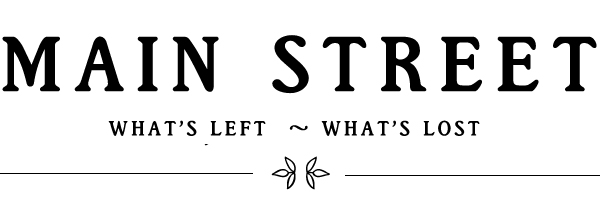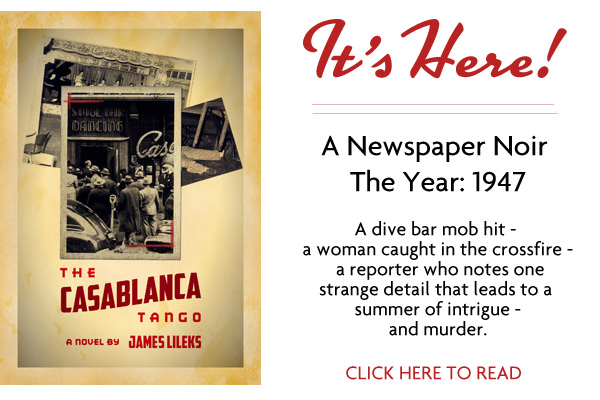We begin with the usual announcement: NEW NOVEL. Thank you.
And continue with the weekly dog picture.

And the weekly construction-across-the-street picture. This made me smile:

Dammit Bob, we ordered concrete! What's this crap?
Uh - the involve says value. Just doing what I'm told, boss.
Here's context for the whole site.

Watch this space. I've no idea why the second floor is so tall, and I'm keen to know why.

At the Daily Dot, a writer discusses SheTaxi, a cab service for women only. She likes the idea, because half the drivers, in her experience, try to talk to her. You wonder how such a thing is legal, given that NYC has stringent gender discrimination laws. A NYT story about the service says:
It will take requests for rides through an app, and dispatch drivers sporting hot pink pashmina scarves.
It is wrong to make little girls wear pink, but you presume this is being done as a snarky rebuke to gender-based color. Unless it’s not. Either’s okay. The real test for the company will be when they run afoul of transgendered people who want to drive, or want to be picked up, and you wonder whether SheTaxi, if staffed by people who have an expansive concept of gender, will result in a biological male driving around a biological male.
The idea of a man-free business made the writer imagine other situations that would be preferably Menschen-frei, including auto-repair shops:
Every time I go to Jiffy Lube, I just have to accept that they are probably making me pay for three completely unnecessary services because I don’t have the know-how nor the personality necessary to challenge them.
One could study up on these things if they weren’t found on the Man-Only Internet, where you have to enter a password you got when you turned 13; then you get all the secret phrases to use to let the Jiffy Lube guy know you’re perfectly content with the current status of your air filter. Usually they back down, but sometimes they growl and show some teeth before they slink away. I’ve told a Jiffy Lube guy that I grew up around a gas station and delivered air filters to other Texaco stations when I was 16, and I know what an air filter with 5K miles left looks like. Sometimes I’ll toss in “damn your eyes” and wave my walking stick.
Then I drive to another Jiffy Lube to get a new air filter, because I probably need one, but i’ll be damned if I let him know it.
Anyway , he article's point is "Seven things that would be better if women ran them." It has some things men might agree should be male-free. I am interested in these things because I have a daughter, and don't want her to grow up viewing men as a pernicious virus. The last one is the only interesting point:
7) Literally everything. I would love to have the option to walk outside and only have to interact with other women all day long. I’d also love to be able boot up my computer and have the option to only see tweets, status updates, and comments from other women. “It looks like you’re trying to use the Internet,” Clippy would say, “Would you like me to delete all the men?” Why yes, Clippy, I would.
Don’t get me wrong. I’m not saying that men don’t deserve jobs. I’m not even saying I don’t like men. But if the demand for a service like SheTaxi is any indication, masculinity can be toxic enough that women will literally pay to avoid it. When many women would rather use a special app to avoid men than climb into a taxicab with a male driver, maybe it’s time for men to figure out how to treat female customers like human beings before we SheTaxi every industry.
It’s too bad she’s such a racist, isn’t it? Well, that has to be it. A 2004 study of the ethnic makeup of NYC cabbies put the figure of immigrant drivers at 84%, the largest number of which are from the West Indies. Now, the roots of her objection may be cultural, but sorry: no one gets a pass on that one.
Yes, of course it’s tongue in cheek. Sort of. She’s not really suggesting that men don’t deserve jobs, or oxygen, or a boot in the groin every day, but if you have to say “I’m not even saying I don’t like men” there’s a wee chance you don’t. And that’s okay! These all-inclusive assumptions about half the population are perfectly acceptable, and jokey T-shirts that say TRUST NO MEN or I BATHE IN MALE TEARS are signifiers to the rest of the clique and intentional provocations to the easily provoked, little more. There used to be a cliche about the bona-fide he-man Woman-Hater, a feller who wanted nothin’ to do with wimmin on accounta they’re wantin’ to snare you and change you and make you put down the corn likker because the baby needs changin’ - who needs it? Modern-day sororal self-segregation is more of the same, and if they wish to form their own mutual-assistance societies of whatever form, go right ahead. No man will sue to join. To paraphrase Groucho, they wouldn’t want to join a club that wouldn’t want him for his member.
As for the male-free Internet thing, I can sympathize. Most of the vicious, idiotic, miserable, weevil-souled trolls are men, or rather largish boys who grew up on the internet and have not quite grasped the idea that there are true, actual human beings on the other side of the screen. Comments and tweets are just another form of electronic play; you shoot a hooker in the head in Grand Theft Auto, call a strange woman nasty names because she criticizes, say, the fact that you can shoot a hooker in the head in Grand Theft Auto. It’s just a game you **** and someone should do it to you. And so on.
It’s odd. You know most of these boy-men were brought up in solid homes with religious grounding, taught to respect women in the old chivalric sense of courtesy and respect, right? My heavens, what went wrong? You could say it’s confusion over how they’re supposed to behave: if you hold the door open for a woman, you’re a sexist, unless she likes you, in which case it’s romantic, although if you don’t hold the door open and it slams in her face you’re a jerk. But these roles were in flux when I was in my twenties, and we didn’t react by sending obscene postcards to strangers. It has to be something else. The internet, in general, has not created more idiots, fools, miscreants, pedants, and fiends; it has simply revealed their numberless hordes, and given them a limitless plain on which to play.
This post originally began about something completely different - a critique of the portrayal of women in video games by someone who got the usual abuse for having an opinion. The video I watched focused on Bioshock games, and I thought the points were poorly argued and ignored the context. I intended to fold it all into something about “Happy Valley,” and the phenomenon of casual misandry, but by the time I was done pecking away at it here and there I had nothing but a mess.
So:
Netflix has a new series called “Happy Valley,” and you know this intended as a neon sign six feet tall blinking the word IRONY! on and off. It takes place in Yorkshire, where deindustrialization has left everyone depressed and on drugs and unable to use the definate article "the". The heroine is a law enforcement officer named Catherine Cawood, played with brine-cured forbearance by Sarah Lancashire. She lives with her sister, a former heroin addict who seems none the worse from it, and takes care of her grandson, who was the result of her daughter’s rape. Her daughter hung herself, and the husband left her because he didn't want to raise the boy. The husband, like every male in the series, is known primarily by his defect. Faithless, venal, penurious, brusque, condescending, leering, criminal, sociopathic, or just plain weak.
The Strong Female Crime Solver is a popular theme in cable prestige dramas; “The Fall” - like “Valley,” a BBC import - featured Gillian Anderson as a glacial murder investigator who exuded a force-field of frost. The serial-killer adversary was a bit of a cliche, but it’s worth watching. (See above, Anderson, Gillian.) AMC’s “The Killing,’ a show set in a Seattle so rainy you expected mushrooms to sprout from your DVR, had Mierelle Enos as a glum, scowling, and of course super dedicated cop who didn’t wear makeup and was trying to quit smoking. The script required her to be a very bad cop every other episode (“Why am I being detained?” “Because you’re the red herring of the week. Get in the car.”) but Enos, like Anderson and Cawood, was an interesting person. Neither “Killing” nor “Fall” seemed to require that men be portrayed as examples of a rather appalling species that had adapted human guise in order to have its way with Earth Girls.
At the start of Happy Valley, it’s made rather plain what men are all about: the cop and her sidekick, a young female, respond to a call of a man threatening to commit suicide because his girl left him. He’s on a jungle gym in a playground. Two bystander men, yukking over the yob’s grief, are sitting in swings. The men are literally infantalized.
It’s like that for the rest of the show, and it culminates in a scene that seems illustrative of what’s acceptable: We see three Yorkshire men, who are working on a metaphor. It is a car up on blocks with no tires. They are laughing at a fat man who is being dragged out of the council house by the cops. The fellow sitting in the driver seat, a smug greaser who is behind the wheel but going nowhere, starts to sing “Another one bites the dust,” and you think it’s about the man who was just arrested, but Catherine believes it’s a reference to a cop was killed in another episode, and the script is on her side.
Anyway, Catherine hauls the man out of the car on a charge of disturbing the peace, puts him in the back of her squad car, and squeezes his yarbles until he cries, then turns him loose.
She was justified, because she was still grieving, and because the script assumed the audience was on her side, and the guy was a total loser, but it was straight-up no-questions sexual assault, or would be if the roles were reversed. But we like the protagonist. And it’s kinda like karma, right?
Right?

 Another week in another month; another town in another state Another week in another month; another town in another state

City Hall looks like the big brother of a Carnegie Library, and I say that as a good thing.

It’s a bit too jammed together, and you wonder if they could have found some level ground on which to build it.
On the opposite side of the spectrum:

Possibly an auto repair garage; I wouldn't be surprised if those doors were the originals from, oh, the 20s.
Another ancient survivor: the ghost ad.

With portholes! For some reason. It looks as if they painted over an arrow that pointed to the Family Shoe Store, too, perhaps to confuse people and make them wander to the other next door, which was the Individual Shoe Store for lonely men and drifters.

Twins who made different life choices:

I hope that's the start of a renovation on the left; the shingled awning is horrible whether it's intact or falling off. And I wonder if the corner cornice was removed before it fell, or beaned someone walking down the street one winter day, after decades of freeze-melt-refreeze cycles had pushed it to the point where gravity said "I'll take it from here.
Not a place to be in a hail storm:

The sign shows that it's a meeting hall for ALL your secret societies, I guess. Nice to see them get together:

More blinded second floors:

Some raw-hamburger on the corner buidling, where some ill-advised addition was ripped off. Peculiar renovation. I cannot imagine what it replaced was worse.
Modernism comes to down and says "this is what it's all about. Very, very little. Deal with it."

The town theater of the week: this time, it's still around.

It seems to have gotten a spiffing up in the 50s or 60s; the lower portion looks like tile, or that aggregated rock that really hurts when you lean up against it and move.
Boo! It's a ghost!

But that's an original Merle Norman - or Normnn - sign. There was a Merle:
The company’s beginnings are an American success story. It started in the late 1920s when an ambitious young woman named Merle Nethercutt Norman began sharing skin care products of her own creation with family and friends. She demonstrated the products as an added service, believing if she could “get it on their faces” they would become customers.
Not the most elegant phrase, but it worked.
This one caught my eye for the sad, tired facade - but then I noticed what they'd done to the building on the left.

After they put in those show windows, was there any room left for the store?
Here you go: have a stroll, if you'd like.







|